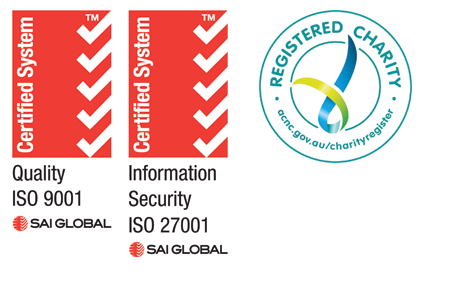Primary care: coodinating change and supporting best practice
Primary care: coordinating change and supporting best practice
Pictured: Megan Lay (L), practice manager, and Dr Sam Zagarella from Niddrie Medical Centre (Image credit: Leigh Henningham)
This was an exciting year across the primary health care sector with NWMPHN helping implement key elements of the Australian Government’s Strengthening Medicare reforms, overseeing the continued rollout and improvement of urgent care clinics, codesigning innovative programs for multidisciplinary care, and building momentum for a project to tackle stigma and discrimination against people with alcohol and other drug challenges.
The general practice sector continues to undergo the biggest change since Medicare was created in 1984. New funding and care initiatives to better equip general practice to meet the challenges of an ageing population and chronic illness are underway, being evaluated and where necessary adjusted.
As always, NWMPHN is playing a vital role in coordinating these reforms:
- informing, supporting and commissioning service providers to ensure effective and efficient change that enables people to stay well in their homes and communities.
- informing and backing general practice and allied health providers through advocacy, education and clinical support.
Of note among this year was the General Practice in Aged Care Incentive, which has needed significant change management, as well as the continued rollout of MyMedicare.
The urgent care sector continued to develop, with new clinics commissioned and existing ones transitioning from state-only to shared or fully federal funding models. NWMPHN has been active in all aspects of this process, conducting tender processes for new clinics, overseeing changes to signage and branding, to coordinating relationships between clinics, hospitals and local communities.
Significant strides are being made towards multidisciplinary team care in primary health. NWMPHN is codesigning truly innovative projects in this area – from location-based support for chronic condition management, to wraparound care for the treatment of eating disorders.
On top of all these new and emerging areas of activity, NWMPHN remains committed to overseeing its extensive ‘business-as-usual’ responsibilities. These range from capacity building initiatives in general practice to programs such as
Doctors in Secondary Schools,
immunisation supply and education campaigns, and programs on
palliative care and
advance care planning.
Pages in this section
Pages in this section
Coordinating change
State and federal governments are investing in significant reforms to increase access to primary care. NWMPHN plays a vital role facilitating this process by supporting primary care providers through innovative new programs.
Pictured: Anthony Albanese, Prime Minister of Australia and Executive Director, Bianca Bell at the opening of Sunshine Medicare Urgent Care Clinic (Image credit: Australian Government, Department of Health, Disability and Ageing)
Multidisciplinary care
At its heart, health is a team pursuit. NWMPHN works to forge cooperative pathways between general practice, allied health, specialists and other clinicians to build effective patient-centred care.
Pictured: Ash Bhoina (L), Physiotherapist at Physio Care and Rehab Services and Marjorie Whitby, resident (Image credit: Leigh Henningham)
Practice support
At its heart, health is a team pursuit. NWMPHN works to forge cooperative pathways between general practice, allied health, specialists and other clinicians to build effective patient-centred care.
Pictured: Isabella Pilatti (L) and Gina-Maree George, staff at Niddrie Medical Centre (Image credit: Leigh Henningham)



